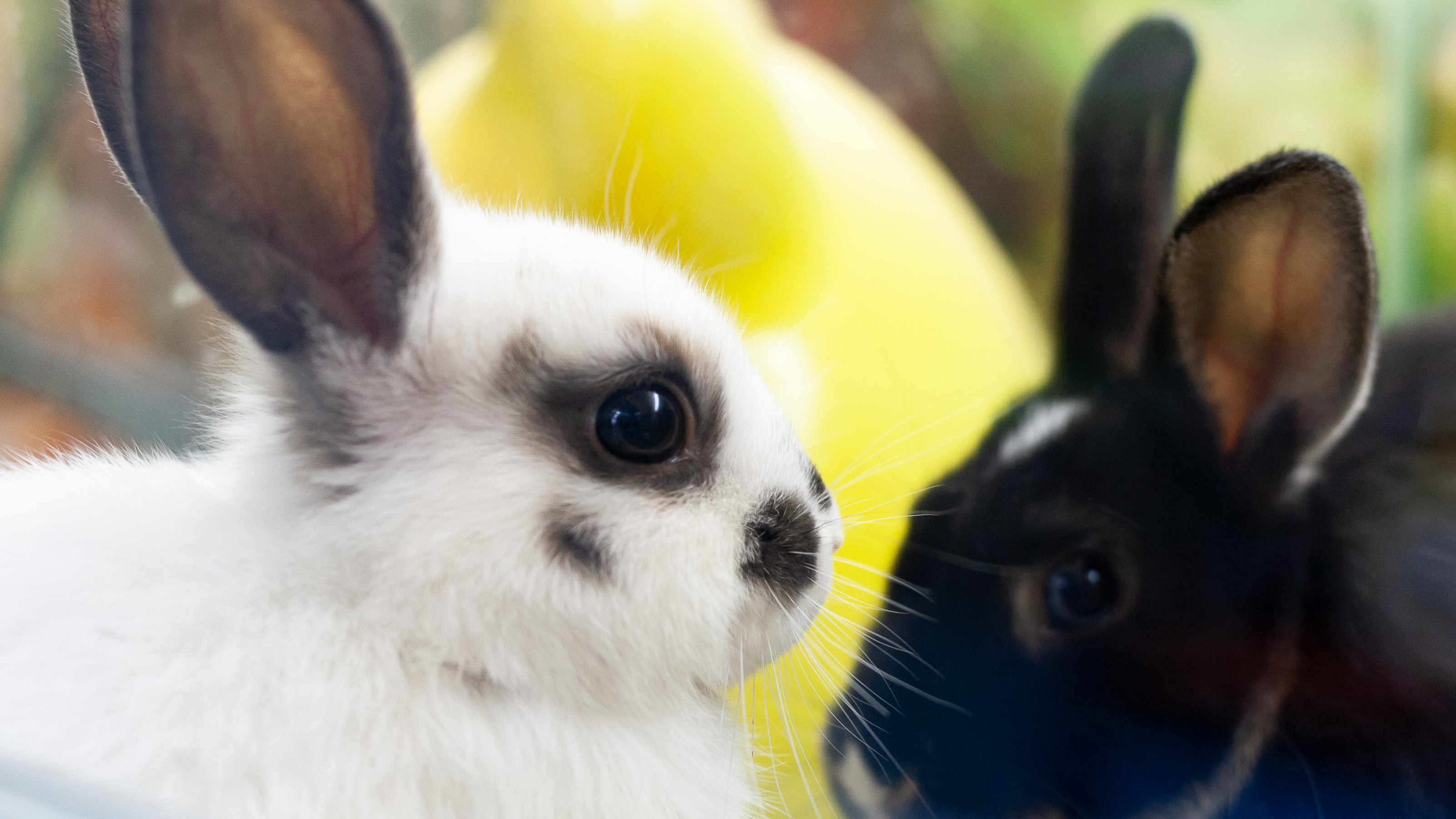
E. Cuniculi And Your Rabbit
E. cuniculi is a microscopic brain and kidney parasite. While many rabbits can carry the parasite and show no signs, others can develop deadly disease.
Infected rabbits start to be infectious themselves about a month after the initial infection, and most continue to be infectious for several months. E. cuniculi is a difficult parasite however, and some rabbits may continue to be infectious throughout their life.
If you are worried that your rabbit may have E. cuniculi, contact your vet immediately.
More about E. cuniculi and your rabbit
The signs of E. cuniculi vary depending on the rabbit and the severity and route of the infection. Signs can include:
- Back leg weakness
- Paralysis
- Head tilted to one side
- Falling over/rolling
- Fits
- Increased thirst and urination
- Weight loss
- Cataracts
- Red, swollen eyes
It is important to note that most rabbits show no signs of an infection at all, and conversely some acutely infected animals can die rapidly. It is thought that periods of stress can cause rabbits who are infected and showing no signs to start being ill.
If your rabbit is experiencing any of these signs then make an appointment with your local Vets4Pets as soon as possible.
With the amount of E. cuniculi infection being so high, and the risk of infection already having occurred from your rabbit’s mother, it is impossible to completely protect your rabbit from E. cuniculi. The best ways to protect your rabbit are:
- Stable environment. While being kept alone would technically be safer, we do not recommend keeping rabbits alone as their welfare can be severely impacted. Stable groups are best in terms of disease management, and also for the general health and behavioural health of your rabbit.
- Monitoring. If you see any changes in your rabbit's, eating and drinking habits, balance or eyes always get them checked over by a vet quickly who will be able to help diagnose and support them.
- New friends. If you want to introduce a new rabbit to your group, consider a quarantine period before the new friends are allowed to mingle. During this time, give all your rabbits a course of medication against E. cuniculi don't forget, your own rabbits may have a silent infection, which can flare up with the stress of a new addition to the family.
- Cleanliness. Routine disinfectants should kill off any E. cuniculi, so make sure to clean your rabbit's areas thoroughly.
If you think your rabbit might have E. cuniculi, the best thing to do is to go to your vet. They can do a full physical examination, and check your rabbit over from nose to bottom! If there is a risk your rabbit may have E. cuniculi, your vet will start your rabbit on a course of treatment, which usually lasts a month. Your rabbit may need hospitalisation, or other supportive care, depending on how seriously they have been affected.
Sadly, severe infections can be devastating, and infected rabbits with serious signs may be recommended euthanasia.
Request an appointmentRabbit Advice
Read more of our expert rabbit advice to keep your rabbit happy and healthy.
